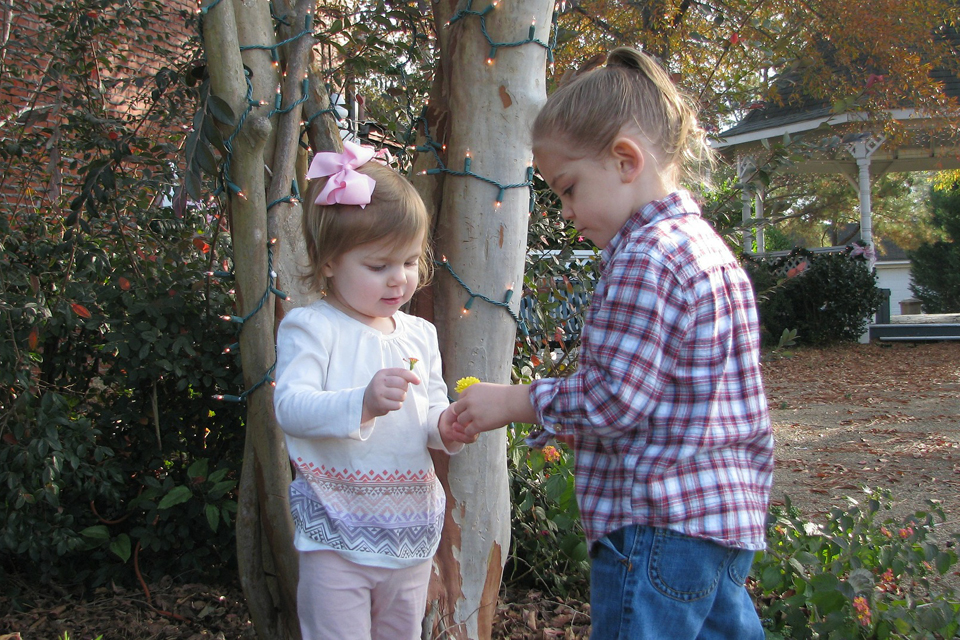UVic linguist tunes in to kids for new study
- Tara Sharpe

UVic researcher Alexandra D’Arcy intends to address one of the most perplexing challenges in the field of linguistics by embarking on a new longitudinal study to explore how kids talk. Starting early in the new year, D’Arcy will identify and begin tracking up to 40 children in Victoria for a period of five years, plugging into the daily prattle with parents, to refine our understanding of how language models change once kids enter elementary school.
Only time will tell
Until about age four, most children sound much like their primary caregivers. As soon as they’re in school, they often begin to talk differently – in the playground and with their peers.
Progressive change is crucial to living languages. “Language changes constantly,” says D’Arcy, “and where it really happens is in playgrounds and classrooms. Past research has never addressed this directly. We know it happens. We just don’t know how it happens.”
The Kids Talk project (funded by a Social Sciences and Humanities Research Council grant, the project’s official name is “Only time will tell: Language change in the preschool and early elementary years”) will observe the evolution of the use of language in the same cohort of children from the immersive context of the home to the melodious backdrop of the playground.
Playgrounds as a hub of language change
Beginning in late pre-school (ages three to four), D’Arcy will record verbal interactions between each child-and-parent pair for the first three years, hooking them up to mics for eight hours every three months while they talk in the car, during bath time and over various daily routines, followed by the same children but now in the school setting.
“Kids are at the leading edge of innovation and reflect the very malleable nature of our linguistic system,” says D’Arcy. “But how does it happen? And what are the differences between how parents speak to girls versus how they speak to boys?
D'Arcy is currently looking for candidates for the study – 30 more children and their parents or guardians – and can be contacted at adarcy@uvic.ca.
She foresees the findings from the new study, wrapping up in 2021, to offer benefits in a range of fields from psychology to education and with sound applications for policy makers and professionals involved in language arts, language and educational policy, and development in the K-12 education sector.
D’Arcy is director of the Sociolinguistics Research Lab at UVic. The Department of Linguistics currently houses three labs, also including the Phonetics Lab and Speech Research Lab.
These labs contribute in various ways to teaching and researching the phonetic and grammatical details of speech, from the physiological properties underlying speech to the acoustic signal that we hear and make sense of.
Hear more from D’Arcy on language variation and language change
Read about D’Arcy’s earlier study tracing Victoria's fabled British roots

